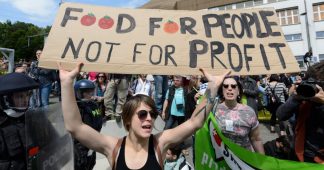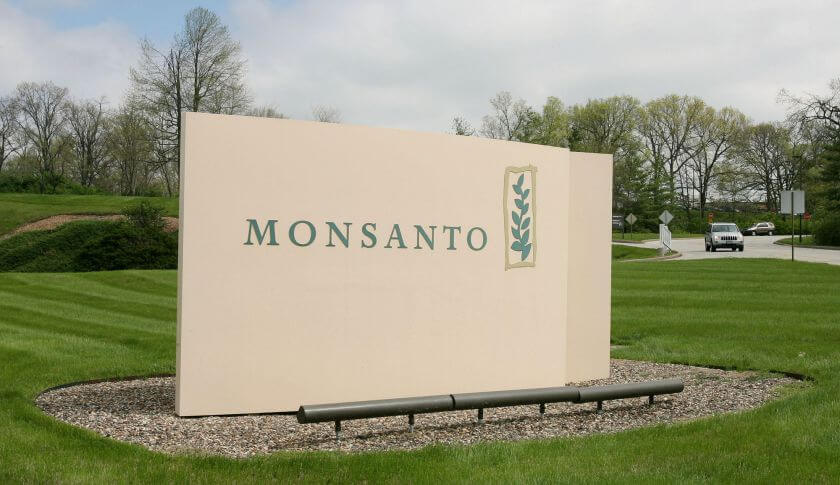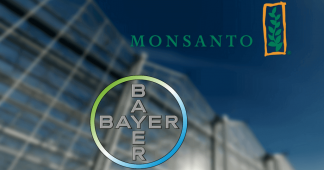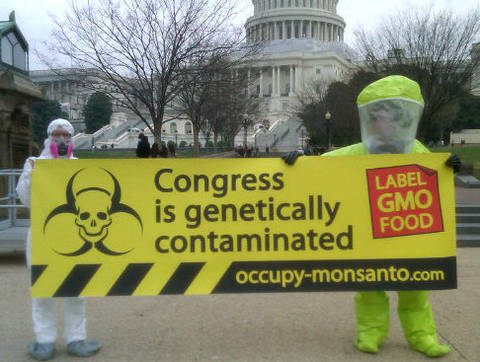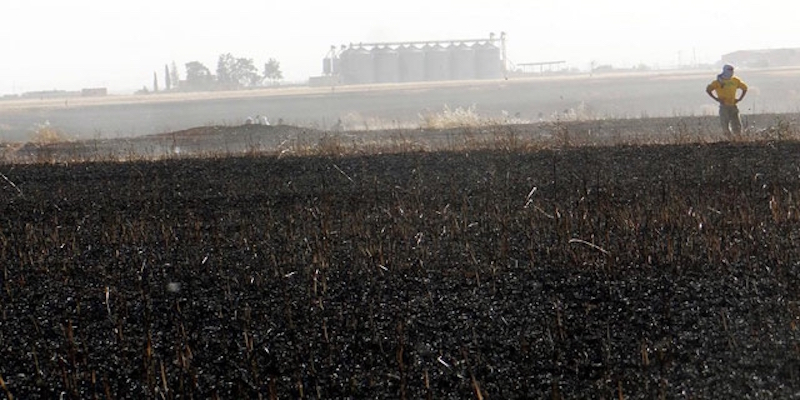A handful of companies control the majority of the food we can buy—which means they make most of the decisions about what we eat.
Choice at the supermarket is merely an illusion. Behind the thousands of seemingly unique brands available, only a few multinational corporations control the majority of the food we eat, which is harmful for eaters, farming communities, the environment, and ultimately, our democracy.
Food Monopolies
To witness the root of the problems with our food system, you need look no further than the business section of the newspaper. Pro-corporate policies and lack of government oversight have led to merger mania in the food and agricultural industry. Monsanto, for example, now owns a staggering number of seed companies that were once its competitors.
It’s no different in the grocery store. Just two firms control more than 60 percent of cracker sales. Four firms control almost 80 percent of cereal sales.
Think you’re a savvy shopper when you choose to buy “healthy” foods such as Kashi or Bear Naked? Kellogg’s owns both.
This lack of competition allows companies to enhance profits by driving down the earnings of farmers and workers in the food system. They control the market price that farmers get for their crops, and dictate the terms of payment to poultry and livestock farmers. Thanks to this unchecked power, multinational corporations like Cargill, Smithfield, Nestlé and PepsiCo essentially shape the food system to maximize their profits alone—at the expense of eaters, farmers and the environment. It means:
- More unhealthy processed foods
- More factory farms
- More loss of family farms and devastation of rural communities
- More ecologically damaging farming practices, including pesticide use and polluting factory farms
To test your knowledge of which companies own the majority of the brands in the grocery store, take our Foodopoly quiz.
GMOs: Another Form of Corporate Control
Contrary to what you may hear in media reports, GMOs aren’t about solving nutrition problems or feeding the world. They are about profits, and ultimately, corporate control of our food system.
The majority of corn and soy in the U.S. are GMOs, which neither feed the world nor address particular nutrition problems. But they do provide a cheap food source to fuel factory farms and unhealthy processed foods. They also devastate the environment, leaving vast monocultures in their wake, and leave farmers hooked on dangerous herbicides like Roundup (also created by Monsanto—ensuring even more profits.) Learn more about GMOs.
The Power These Companies Have is Affecting Our Democracy
Corporations have a vested interest in keeping the food system profitable above all, and they are powerful enough to shape policies that keep it that way. When corporate influence shapes policy, their profits come ahead of people’s interests.
We Can’t Shop Our Way Out of The Problem
While supporting the sort of food and farming practices we like with our food dollars is important, personal choices about how we eat won’t fix the food system; the problems are just too big.
In order to create real change, we are building a movement with enough political power to change the policies that put corporations in control of our food.
Read Wenonah Hauter’s Foodopoly – The Battle Over the Future of Food and Farming.
